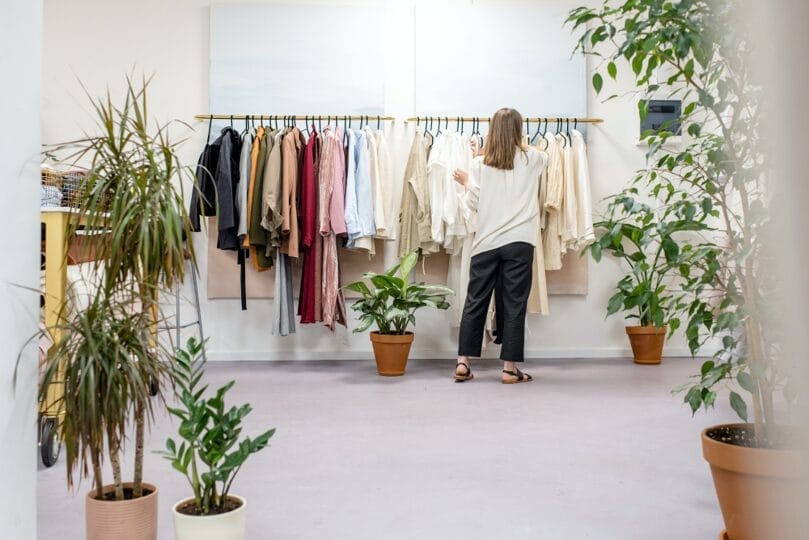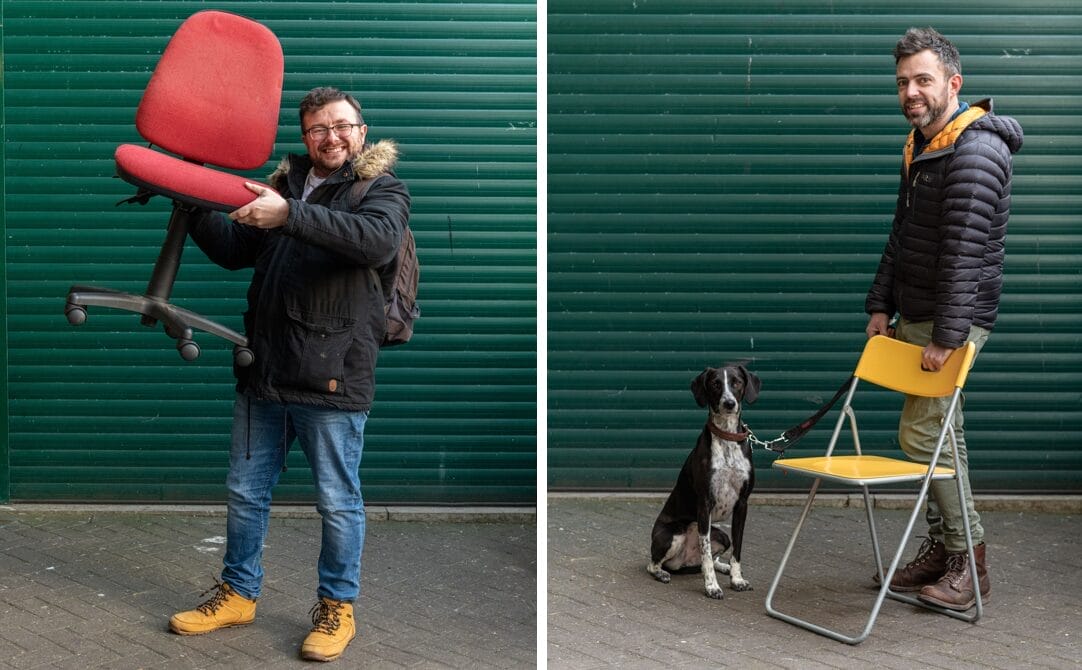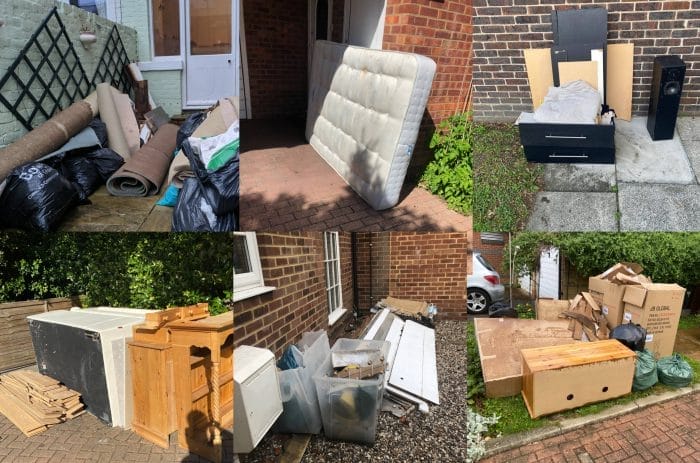Summary
- Public sector organisations can create social value when they engage with and support circular economy innovation. London is a great city in which to do this, host to a growing network of exciting businesses that challenge how we make, use and throw-away stuff.
- We’re seeing different models of collaborations emerge. In some cases, the public sector procures circular services directly; in others, they facilitate their local residents and supply chains to take up circular practices.
- The environmental, economic, and social benefits of working in this way are profound, and sometimes surprising. Even the smallest business can create big impact and help the public sector tackle problematic waste streams, address the cost of living crisis, encourage community cohesion, and create new jobs and upskilling opportunities.
Small businesses in the circular economy help tackle the causes of climate change, regenerate nature, and create positive socio-economic opportunities for local communities. Their business models are designed to meet society’s needs while using less ‘stuff’ and keeping it in use for longer, at its highest value – for example by offering repair, selling second-hand items, or making products from ‘waste’.
Public sector organisations can benefit from engaging with these small businesses. We’ve gathered examples of collaborations – big and small – that speak volumes about the positive impact these collaborations can have.
Verte, a small and mighty female-led start-up, is challenging Londoners’ need for newly-made clothes through clothes swap events.
In 2022, Verte was commissioned by Station-to-Station business improvement district to run a clothes swap for kids in West Norwood. Verte partnered with a local church to collect unloved garments from the community. They then organised a pop-up event in a school as part of the local Spring Festival, with children and parents invited to browse the curated collection of second-hand clothes.
What was the outcome?
The event was incredibly popular, bringing out kids from all age groups to ‘shop’ in a more sustainable (and cheaper) way. The event engaged 30 children and their parents and was effective in finding new homes for 200 items of clothing. As a result, Verte estimates that this avoided 2,000 kg of carbon emissions!
Please have more of these events, you’re helping me to save so much money!
Parent at event
Verte has since evolved its offer, partnering with local businesses, councils and landlords to activate vacant retail space with pop-ups. For example, Verte recently helped Brookfield Properties and Knight Frank run a 4-day pop-up with over 300 people visiting a previously empty unit – helping drive leasing enquiries for the space in the process.

Why we like this example
- Circular projects don’t need to be stand-alone – they integrate into planned or regular activities (in this case, an annual festival) and can involve a range of local actors (business improvement districts, schools, churches, and commercial landlords).
- Small, one-off trials create valuable opportunities for earlier-stage businesses to refine their business model at relatively low-risk – and unlock social value.
Freegle helps businesses and individuals give stuff away, instead of throwing it away. If you have stuff you don’t need, Freegle matches you with someone local who can use it – like online dating for stuff!
Ahead of a major office refurbishment project in early 2022, the London Borough of Sutton worked with Freegle to find new homes for its surplus items.
What was the outcome?
Using the Freegle platform, individuals, local groups and charities were invited to claim items direct from the council, at no cost. Around twenty people attended ‘open days’, including representatives from a local church, a children’s charity and four of the borough’s schools. Sutton Council provided staff on three floors to help direct visitors.
Freegle was able to re-home over 100 pieces of large furniture, as well as many smaller items. Schools and community organisations particularly valued the larger items on offer, which can otherwise be expensive or difficult to get. Office chairs were popular, claimed within only a few days. But no item was too small: even hole punchers and foot rests were given a new home!

Why we like this example
- With just a little bit of planning, and by offering flexibility around collection, public organisations can unlock social value in the local area – just from their unwanted stuff!
- Small, one-off trials create valuable opportunities for earlier-stage businesses to refine their business model at relatively low-risk – and unlock social value.
thinkFOUND is a community interest company (CIC) based in Waltham Forest. They train and employ at-risk youth and those furthest from employment to make beautiful furniture from waste wood, helping unlock work opportunities and divert waste all at once.
ReLondon and the London Borough of Waltham Forest commissioned thinkFOUND to create food waste containers for residents who live in flats above shops. The challenge for these households is that their bins are located on the street, and can become an eye sore for the public.
As part of a funded trial, thinkFOUND were invited to develop 14 small food waste containers for residents without bins of their own that would match the aesthetics of the local area, be easy to use and safe for the waste collection crews to collect from.
What was the outcome?
The thinkFOUND team repurposed over 500kg of timber, using wood from trees felled for dieback and bigger stems saved from firewood pile. In the process of creating the containers, thinkFOUND provided 80 hours of specialist training (such as working with raw hardwood slabs, sanding finishings, machinery use, etc.) and work experience for two individuals.
Additionally, thinkFOUND were able to strengthen their relationship with a local SME – The Fixatorium – who completed the design and engraving of the lid signage. By working together, The Fixatorium is now able to train a local residents to use a laser printer and relevant software in order to fulfil more work like this in the future. This has enabled the Fixatorium and thinkFOUND to develop a job sharing role for an individual. This commissioned work has the potential to create a part job or full time job in the future.
The containers have been really well received by local residents. When monitored over a 10-collection day period, ~60% of the bins were regularly used and contained food waste.
Going circular with social procurement can help design out social issues and save money in the long run for other council services. It didn’t just reduce waste, it enabled wellbeing, training and employment.
Chris Barrett, thinkFOUND, Director

Credit: thinkFOUND
- Circular business models can unlock new skills, interests and career opportunities for young people who face obstacles to employment.
- Trials and projects can incorporate the circular economy in small ways, and in the process give circular innovators the opportunity to explore new revenue streams.
- Multiple institutions can come together and work with circular businesses, engaging with residents to contribute to the improvement and waste reduction in a localised area, resulting in behavioural changes.
LoveJunk is an online marketplace for the collection of bulky waste, furniture and appliances. It matches you to vetted, licensed waste carriers and reuse organisations and is free to use.
Islington Council has partnered with LoveJunk since 2020 to complement its household bulky waste collection service, facilitate greater reuse and help stop fly tipping in the borough.
What was the outcome?
LoveJunk is promoted on Islington Council’s website here and here to residents as a service provider for the disposal of waste the council cannot collect (e.g. builders’ waste, DIY rubbish, bulky garden refuse, internal collections, collections out of hours), and for unwanted, working items that could potentially be reused (eg. sofa, chest of drawers, table, fridge).
In return, LoveJunk logs and reports back to the council on collection numbers, landfill diversion and reuse levels in Islington postcodes that occur via the platform.
As a result of this partnership, so far the LoveJunk marketplace has facilitated over 1,300 collections for Islington residents. This has helped divert 350 tonnes of waste from landfill, and led to more than 200 items being reused that would otherwise have been destroyed. The partnership has also ensured that all the waste has been disposed of safely and responsibly by verified, licensed waste collectors.
Islington council has recommended the LoveJunk marketplace since October 2020. Feedback has been very positive. It provides residents with an easy way to find a licensed waste carrier or reuse solution for junk and rubbish the council is unable to collect through our bulky waste removal service. This helps reduce the chances of fly tipping and has increased the amount of material that is reused and recycled in our borough.
Recycling and waste minimisation officer for Islington Council

Credit: LoveJunk
Since then, LoveJunk has partnered with many more councils in London including Brent, Camden, Ealing, Hackney, Hounslow, Kensington & Chelsea and Wandsworth, as well as the West London Waste Authority.
What a service – had some rubble I needed to clear and tried really hard to find somewhere to get rid of it. This app was recommended by Islington Council and is fantastic. Easy to use and quick service.
Islington resident
Why we like this example
- By promoting services to residents, councils can give early-stage businesses the opportunity to grow and refine their services.
- Councils can work in partnership with circular businesses to shift behaviours in useful ways, tackling local issues like fly-tipping.
Inspired by these examples, but not sure how to apply this to your organisation?
ReLondon is keen to help you on your journey to engage with circular economy innovators – get in touch if you’d like to explore how.

